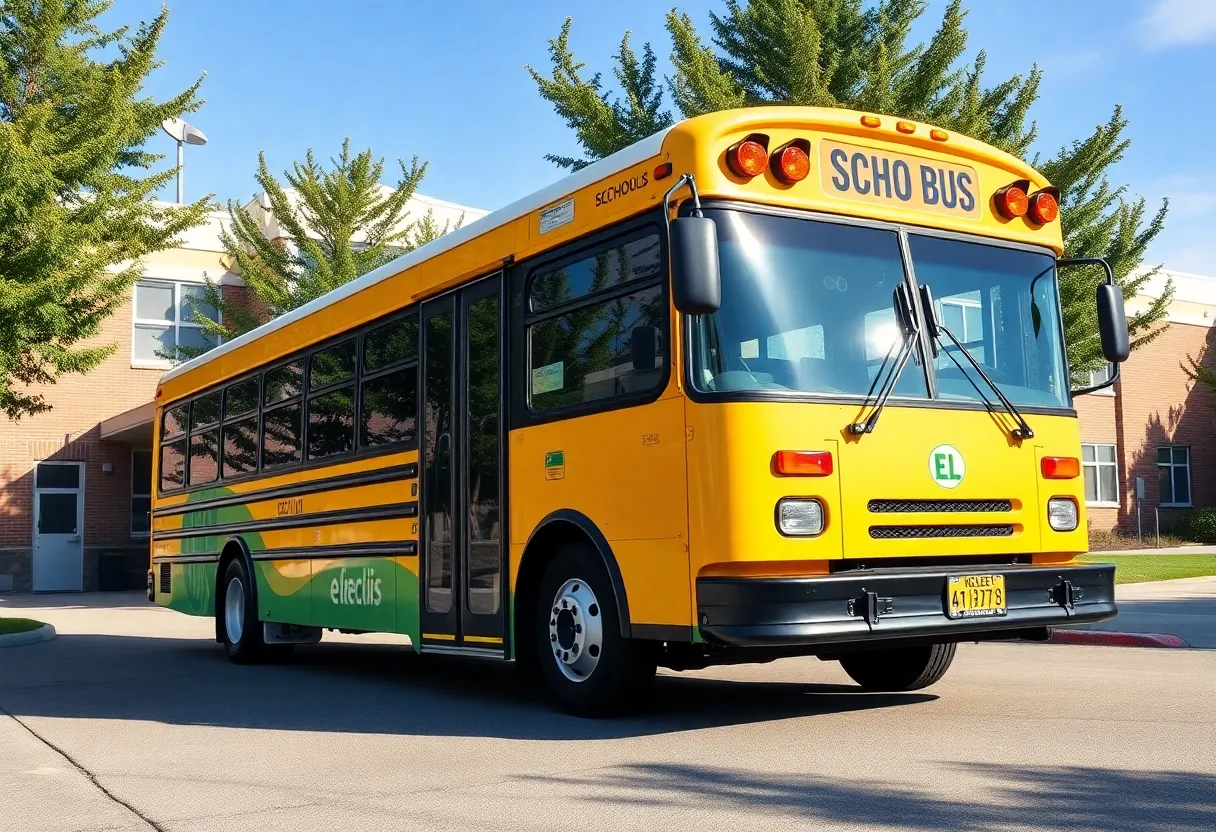News Summary
New York school districts are gearing up for a transition to electric buses, mandated by 2035. While Shenendehowa Central School District leads with electric bus testing, other districts like Churchville-Chili are more cautious. Considerable costs and challenges like cold weather battery performance raise concerns, though state support aims to ease financial burdens.
New York School Districts Tackle Electric Bus Transition by 2035
As Earth Week shines a light on sustainability efforts across New York, school districts are finding themselves in a race against time to meet new demands for zero-emission transportation. The recent state mandate requires all new school bus purchases to be zero-emission by 2027, and by 2035, every school bus operating on New York roads must be electric. This significant shift has many districts—like Shenendehowa Central School District—eager yet cautious as they navigate the transition.
Shenendehowa Leads the Charge
In this proactive district, excitement is in the air as they have already rolled out four electric buses this year. These buses have been put into service for real-world condition testing, allowing the district to gather valuable data on their performance. Drivers have praised the electric buses for their whisper-quiet operation, especially when compared to the noisy diesel models they are used to.
Shenendehowa is fully committed to understanding the capabilities and limitations of electric buses. Their testing includes monitoring battery range, performance in cold weather, and the logistics of charging. They’re not holding back either; the district sends these electric buses out on long, challenging routes to truly gauge their endurance.
Cold Weather Challenges
However, there have been some bumps along the way. Recently, cold weather has impacted the battery range of these electric buses, with reports indicating a minimum decrease of 10%. With nearly 10,000 students relying on their transport services, Shenendehowa’s fleet consists of over 200 buses, making the stakes incredibly high for a successful transition.
Other Districts Finding Their Way
Meanwhile, not all school districts are racing ahead. The Churchville-Chili Central School District is also contemplating electric bus purchases but is taking a more cautious approach after facing hurdles last year. Their proposal for an inaugural electric bus was turned down by voters, leading them to reassess their strategy and seek additional state aid.
Cost vs. Long-Term Savings
The costs associated with electric buses are another hurdle that districts are grappling with. Upfront costs can range from $200,000 to nearly $500,000, often making electric models double or triple the expense of traditional diesel buses. It’s a significant investment for cash-strapped districts, and many are hoping for support from the New York State Energy Research and Development Authority (NYSERDA).
NYSERDA has stepped in with the New York School Bus Incentive Program, which could help bridge the financial gap. This program covers the difference in cost between diesel and electric buses and provides necessary funding for building out charging infrastructure. Despite the potential long-term savings on fuel and maintenance, many districts remain cautious.
Looking Ahead
With increasing awareness about the environment and sustainability, the transition to electric buses is undoubtedly a step in the right direction. Nevertheless, many school districts are still wrestling with concerns over infrastructure, tariffs, and grid capacity. The question of how tariffs may affect future pricing for electric buses lingers in the minds of superintendents, casting a shadow over their plans.
The journey to transitioning to electric bus fleets is recognized as a significant leap that requires careful planning, financial flexibility, and time. While some districts may be taking the lead, everyone is watching closely to see how this green revolution unfolds in the coming years.
Deeper Dive: News & Info About This Topic
HERE Resources
New York’s Health Tech Scene Thrives Amid Economic Hurdles
New York City Prepares for Severe Weekend Storm
New York Rejects Federal Pressure on School Diversity Policies
New York City Education Faces Setback Amid Federal Office Closure
New York Embraces Electric School Buses to Foster Greener Future
Additional Resources
- Spectrum Local News
- Daily Gazette
- Press Connects
- Wikipedia: Electric School Bus
- Google Search: Electric School Buses New York
Author: STAFF HERE NEW YORK WRITER
The NEW YORK STAFF WRITER represents the experienced team at HERENewYork.com, your go-to source for actionable local news and information in New York, the five boroughs, and beyond. Specializing in "news you can use," we cover essential topics like product reviews for personal and business needs, local business directories, politics, real estate trends, neighborhood insights, and state news affecting the area—with deep expertise drawn from years of dedicated reporting and strong community input, including local press releases and business updates. We deliver top reporting on high-value events such as New York Fashion Week, Macy's Thanksgiving Day Parade, and Tribeca Film Festival. Our coverage extends to key organizations like the Greater New York Chamber of Commerce and United Way of New York, plus leading businesses in finance and media that power the local economy such as JPMorgan Chase, Goldman Sachs, and Bloomberg. As part of the broader HERE network, including HEREBuffalo.com, we provide comprehensive, credible insights into New York's dynamic landscape.





